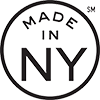Nurses are the backbone of the healthcare system; they’re an essential and integral part of patient care. For travel nurses in particular, licensure can be a barrier to working in different states. The Nurse Licensure Compact (NLC) was created to simplify the licensing process for nurses and healthcare organizations alike. In this article, we will delve deeper into the NLC and discuss its benefits for both travel nurses and the healthcare industry as a whole.
The Basics of the Nurse Licensure Compact
The NLC is an agreement among participating states that allows nurses to have a single multistate license. With this license, a nurse can practice in any NLC state without the need for additional licensure. First introduced in 2000, the compact has grown to include 39 states as of 2023, with more states expected to join in the coming years.
The primary motivation behind the creation of the NLC was to address the nursing shortage in the United States and streamline the licensure process. It removes the barriers to practicing in multiple states, allowing nurses to more easily accept travel assignments and broaden their professional horizons.
In order to be eligible for a multistate license under the NLC, a nurse must hold a current, active nursing license in their primary state of residence, which must be a participating NLC state. Nurses should be aware that if they change their primary state of residence, they may need to apply for a new multistate license in their new home state. Furthermore, nurses must meet the uniform licensure requirements established by the National Council of State Boards of Nursing (NCSBN).
Benefits of the Compact for Travel Nurses

There are numerous advantages to being a travel nurse with a multistate license under the NLC. Firstly, the streamlined licensure process saves time and effort. Without the NLC, travel nurses would need to apply for a separate license in each state they want to work in. This can be a time-consuming process, involving paperwork, fees, and sometimes waiting several weeks for the license to be issued. With a multistate license, travel nurses can accept assignments and begin working in participating states more quickly.
Travel nursing can be an exciting and rewarding profession, as it allows nurses to experience different healthcare settings, enhance their skills, and expand their professional network. The NLC makes it easier for travel nurses to pursue these opportunities and grow in their careers. With the barrier of licensure lessened, nurses are more likely to take on travel assignments, enhancing their personal and professional lives.
The Fusion Marketplace nursing compact states program also offers increased job opportunities, as nurses can practice in several states without applying for a new license. This increases the chances of landing a desirable travel position and can result in increased job satisfaction. Hopping from one state to another for a job can be an exhilarating experience and create lifelong memories and connections.
Impact on Healthcare Organizations
Healthcare organizations also benefit greatly from the Nurse Licensure Compact. They can more easily recruit travel nurses to fill essential positions, especially when they experience a sudden surge in patient volume, such as during a public health crisis. Travel nurses can help alleviate staffing shortages, ensure adequate patient care, and provide specialized expertise when needed.
Moreover, the NLC reduces the administrative burden on healthcare organizations by simplifying the licensure process. As a result, organizations can focus their energy on providing top-notch patient care instead of navigating complex licensure requirements. This can contribute to improved patient satisfaction and outcomes.
Lastly, the NLC allows healthcare organizations to tap into a larger pool of qualified nursing professionals. With the ease of a multistate license, travel nurses can be more responsive to job openings in different states, which can make it easier for healthcare facilities to find the right candidate that meets their specific needs.
Future of the Nurse Licensure Compact

The Nurse Licensure Compact continues to expand, with more states joining the agreement each year. As more states participate in the compact, travel nurses and healthcare organizations alike will enjoy increased professional flexibility and streamlined licensure processes. This can aid in addressing the nursing shortage and ensuring that patients receive quality care across the country.
Furthermore, the compact has paved the way for discussions about interstate compacts in other healthcare professions, such as physical therapy and occupational therapy. As healthcare becomes increasingly interconnected, it is vital that licensure processes adapt to meet the changing landscape of patient care and healthcare workforce mobility.
Overall, the Nurse Licensure Compact has had a significant impact on travel nursing and healthcare organizations. By streamlining the licensure process and breaking down barriers between states, the NLC has enabled nurses to take advantage of travel opportunities and help healthcare organizations maintain adequate staffing levels. As the NLC continues to expand, the benefits will only become greater, ensuring a bright future for this groundbreaking compact.





